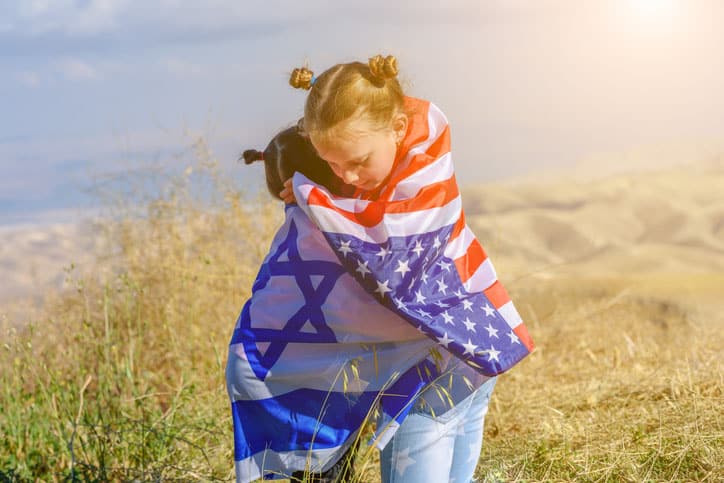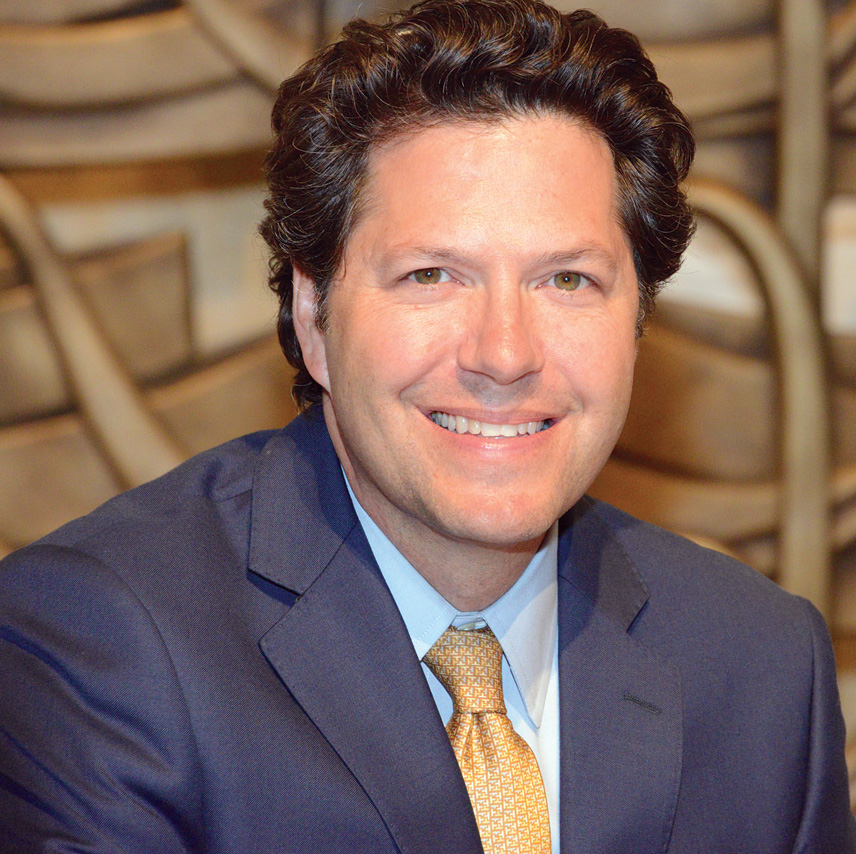 Inna Reznik/Getty Images
Inna Reznik/Getty Images “We look like we’re strong. We look like we’re doing ok, but the truth is, we are just pieces of ourselves.”
It hurts to hear her utter these words.
I’ve heard her say so much over the past 54 days, but never this. I listened to her speech before the U.N. and at the rally in D.C. and in her recent audience with the Pope in Rome.
I’ve seen her and her husband again and again on social media. And long before the nightmare began, long before becoming the thing she least wanted to be in the world – the face of the families of the hostages – she was our neighbor and friend. The son she is fighting for was at our oldest daughter’s bat mitzvah in Jerusalem.
Throughout it all, Rachel’s voice never wavers. She is always on point. She is clear, prophetic even. And she is strong — Jewish mother strong. She is fierce and she is tender.
Rachel Goldberg is all of those things. Her husband, Jon Polin, is all of those things.
And also, they have been torn apart, they are in pieces, they are—in some ways—shattered. But in spending time this week with Jon and Rachel and other families of those held hostage, “shattered” really doesn’t seem to be the right word. Shattered means broken beyond repair. Shattered means impossible to be put back together, to be made whole. Shattered means unable to function.
And — looking at these families from the outside — I see extraordinary strength, I see deep love, I see compassion and tenderness and goodness and grace and dignity. To me, they are not shattered. They are not broken.
To be sure, they are in deep pain — pain I cannot fully understand. They are living, Rachel reminds us, on a different planet altogether, one she calls the “planet of tears.”
But clearly they are not broken. Notwithstanding how they might feel, they are, objectively, not shattered.
And part of the reason, I think, is because of us — the collective us. Their friends. Their family. And their extended family — Am Yisrael.
I heard it again and again over the past few days and in my previous visit from the families of hostages, the bereaved families who have lost children, the parents who are worried sick about their sons and daughters in the army. Again and again they told me that our love, our concern, our letters and packages and phone calls and texts — these things give them strength. These things help them continue to function. These things help them to hold onto hope. These things enable them to experience unimaginable pain, unimaginable heartbreak, without actually coming fully and irreparably undone, without breaking into pieces, fragmenting onto the floor.
We are Am Yisrael, a people that takes its name from the Torah portion we read this past Shabbat. Jacob wrestles with the angel and gets a new name:
“Your name shall no longer be Jacob, but Israel, for you have striven with beings divine and human, and have prevailed.” (Genesis 32:29)
We are often told that we are “God wrestlers” — we are the descendants of Jacob, the one who strives with beings divine and human. But the root of the word Yisrael has another nuance that helps me understand this difficult time. It can mean to persist or to persevere.
We are the people that persist, that persevere, that hang in there with God day after day, year after year, century after century.
This is our strength, our superpower. Somehow, despite everything we’ve experienced, despite everything we’ve been through — from pogrom to massacre to genocide — we persist. Together, we are in pain but we are not broken.
This is our strength, our superpower. Somehow, despite everything we’ve experienced, despite everything we’ve been through — from pogrom to massacre to genocide — we persist.
Together, we are in pain but we are not broken. Together, as a people, we are hurting but we are not shattered.
We are Am Yisrael.
Rabbi Yoshi Zweiback is the Senior Rabbi of Stephen Wise Temple in Los Angeles, California.























 More news and opinions than at a Shabbat dinner, right in your inbox.
More news and opinions than at a Shabbat dinner, right in your inbox.